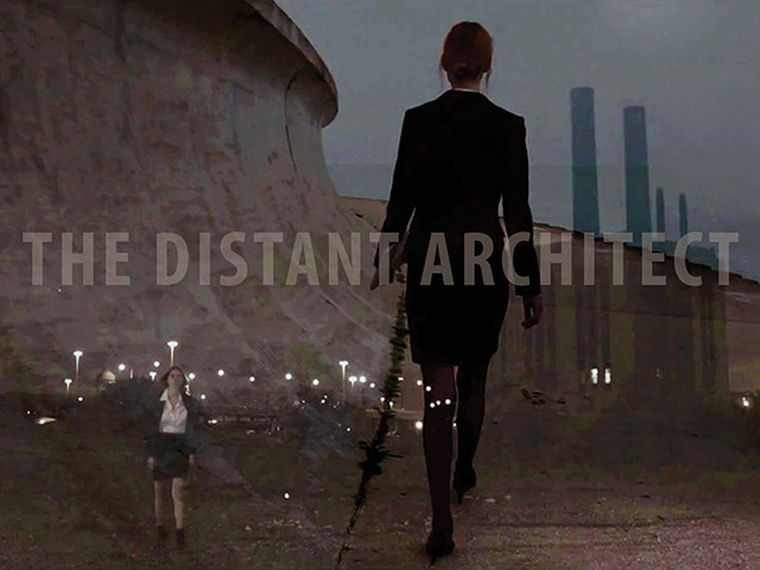Columbia alumna ‘Architect’ of new science-fiction noir film
Photo Courtesy of CLARA ALCOTT
“The Distant Architect” is a noir science-fiction film written and directed by Clara Alcott. The short film tells the story of a Chicago architect who starts to question how she views herself and what she knows about her body.
November 10, 2014
Clara Alcott, a 2001 film + video alumna, first started working on the screenplay for “The Distant Architect” 10 years ago. Originally set to be a full-length movie, it was trimmed to fit a smaller budget and enable filming in a shorter period of time, Alcott said.
Now, after launching a Kickstarter campaign and receiving funds from the Illinois Arts Council, Nokia and The Independent Spirit Awards, Alcott will finally see the film brought to life.
Alcott said the cast and crew will begin filming in March 2015 over the course of six days. The film follows a young architect named Karen who begins to question who she is and what she knows about her body. The film is filled with suspense and tension, be fitting its science-fiction noir film category, she said.
“I wanted to make a very visual piece, and I wanted the protagonist to be an artist, something that would be very visual [for the viewer],” Alcott said. “That’s how I got to architecture. I also love design and architecture, so I really started to get into it when I started doing the research for this film.”
José Luis Rios, the director of photography for the film, said he first met Alcott in the early 2000s, and before long, they discovered they spoke similar visual languages. Rios said he was instantly drawn to “The Distant Architect” when Alcott first sent him the screenplay for the film.
“The screenplay was poetically and visually written,” Rios said. “The story came to life with every page I turned.”
Laurie Little, producer for the project and a lecturer at Columbia, said she was introduced to Alcott through friends in the Cinema Art + Science Department, previously the film + video Department, who said the two would work well together. She said the screenplay drew her in with its message to women.
“[The screenplay] resonated well with my interest in the metaphors of women, feminist issues and how we think about our bodies,” Little said. “I like the idea of working on a science-fiction noir [film] because of the ideas of how you get across this interesting, dystopian Chicago through the eyes of [the main character, Karen].”
Rios lives in Los Angeles and said although the project is based in Chicago, he and Alcott communicate via Skype so the visual elements for the movie can be further developed for the start of filming.
“We cataloged noir-inspired photos and films and even listened to music to inspire the feeling we want to express through the lens,” Rios said. “Whenever I come to Chicago, [Alcott and I] would explore the city’s architecture for backdrops and do test shoots.”
Little said the last several projects she has worked on have taken more of a classical approach to film, so she is excited to work on a project with a different, darker tone like “The Distant Architect.”
“My [recent] work in social issue documentaries and social issue fiction films has been much more classic,” Little said. “In a way, I’m going back to some of my roots. [The film] just resonated with me because of the art and experimental aspects of the film.”
Rios said he is fortunate to have been with the project from the beginning and is excited to get the chance to see it blossom.
Alcott said she wants the idea of having a strong female protagonist in this type of film to resonate with audiences because other science-fiction noir films have focused on men.
“I wanted to write a science-fiction noir from a woman’s point of view about facing and solving her problems,” Alcott said. “[I want people to see a] feminist perspective on science fiction and noir.”








